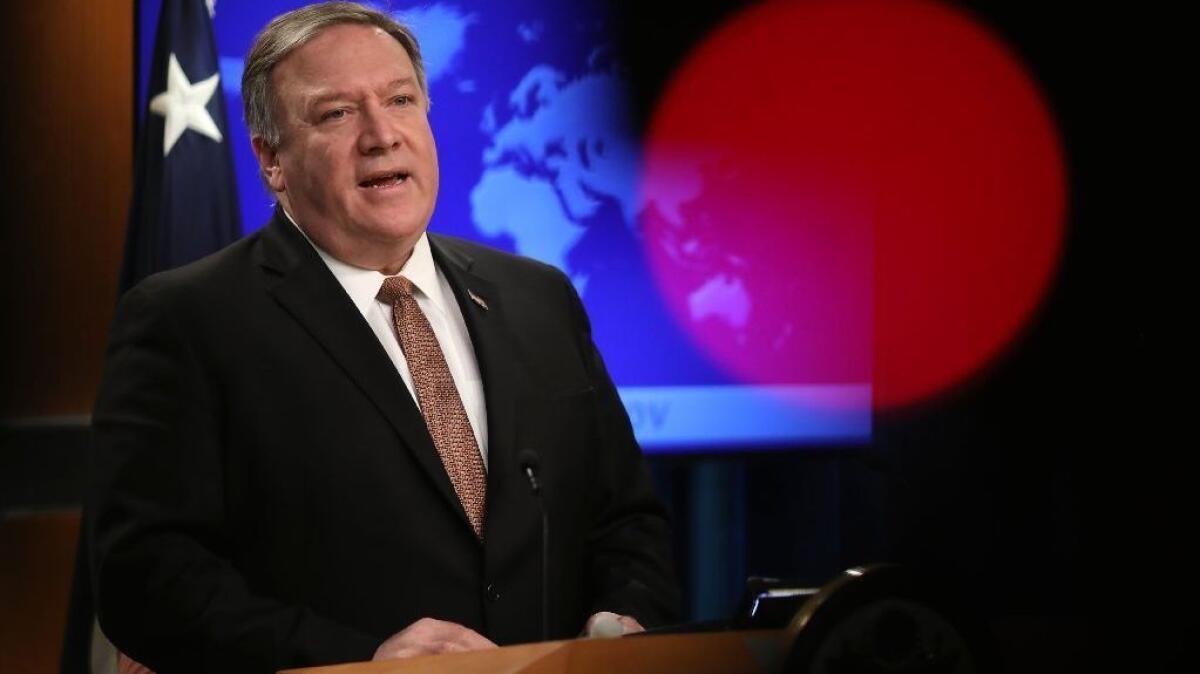U.S. to revoke visas of International Criminal Court members who investigate troops

- Share via
Reporting from Washington — The Trump administration said Friday it will revoke or deny U.S. visas for judges, lawyers or other members of a major international tribunal if they investigate or prosecute U.S. soldiers for potential war crimes.
Secretary of State Michael R. Pompeo said the action was aimed at the International Criminal Court, based in The Hague since 1998, because of a case involving U.S. service members in Afghanistan.
The United States never joined the international court because previous administrations also objected to non-U.S. courts prosecuting American soldiers. But the Trump administration has viewed the tribunal with special disdain.
Revoking U.S. visas was an unusual move since the court operates under an international mandate.
In response, the court said in a statement it would continue its “independent work, undeterred.”
Pompeo would not say how many people might be affected. The court has about 450 staffers, including 16 U.S. citizens.
The case involving U.S. troops in Afghanistan has not been formally filed but is under investigation. Officials have not provided details.
Court members responsible for the investigation “should not assume that you still have or will get a visa or will be permitted to enter the United States,” Pompeo said at the State Department.
He said U.S. visas also would be revoked for ICC members who investigate Israel, an apparent allusion to a request by the Palestinian Authority for the tribunal to examine alleged abuses by Israeli troops in the West Bank.
Human rights activists accused the Trump administration of attempting to evade accountability.
“Taking action against [the court] sends a clear message to torturers and murderers alike: their crimes may continue unchecked,” Andrea Prasow, deputy Washington director for Human Rights Watch, said in a statement.
The tribunal, which is backed by more than 120 nations, is seen as a court of last resort for the investigation and punishment of people accused of war crimes, crimes against humanity and other egregious atrocities.
It began its work in 2003, taking up the mantle from two ad-hoc international courts that investigated atrocities in the Balkans war in the 1990s and the Rwanda genocide of 1994.
For more on international affairs, follow @TracyKWilkinson on Twitter
More to Read
Sign up for Essential California
The most important California stories and recommendations in your inbox every morning.
You may occasionally receive promotional content from the Los Angeles Times.










